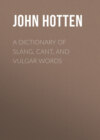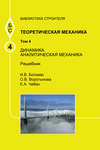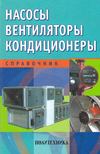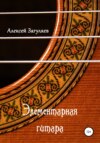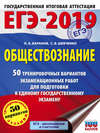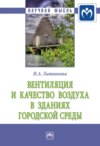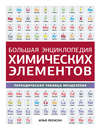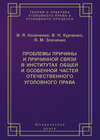Читать книгу: «A Dictionary of Slang, Cant, and Vulgar Words», страница 16
GLOSSARY OF THE BACK SLANG
BIRK, a “crib,” – house.
COOL, to look.
COOL HIM, look at him. A phrase frequently used when one costermonger warns another of the approach of a policeman.
DAB, bad.
DABHENO, one bad, or a bad market. —See DOOGHENO.
DAB TROS, a bad sort.
DA-ERB, bread.
DEB, or DAB, a bed; “I’m on to the DEB,” I’m going to bed.
DILLO-NAMO, an old woman.
DLOG, gold.
DOOG, good.
DOOGHENO, literally “one-good,” or “good-one,” but implying generally a good market.
DOOGHENO HIT, one good hit. A coster remarks to a “mate,” “Jack made a DOOGHENO HIT this morning,” implying that he did well at market, or sold out with good profit.
DUNOP, a pound.
ERTH, three.
EARTH57 GENS, three shillings.
EARTH SITH-NOMS, three months.
EARTH YANNOPS, or YENEPS, threepence.
EDGABAC, cabbage.
EDGENARO, an orange.
E-FINK, knife.
EKAME, a “make,” or swindle.
EKOM, a “moke,” or donkey.
ELRIG, a girl.
ENIF, fine.
ENIN GENS, nine shillings.
ENIN YENEP, ninepence.
ENIN YANNOPS, or YENEPS, ninepence.
ENO, one.
ERIF, fire.
ERTH GENS, three shillings.
ERTH-PU, three-up, a street game.
ERTH SITH-NOMS, three months, – a term of imprisonment unfortunately very familiar to the lower orders.
ERTH-YENEPS, threepence.
ESCLOP, the police.
ES-ROPH, or ES-ROCH, a horse.
EVIF-YENEPS, five pence.
EVLENET-GENS, twelve shillings.
EVLENET SITH-NOMS, twelve months.
EWIF-GENS, a crown, or five shillings.
EWIF-YENEPS, fivepence.
EXIS GENS, six shillings.
EXIS-EWIF-GENS, six times five shillings, i. e., 30s. All moneys may be reckoned in this manner, either with YENEPS or GENS.
EXIS-EVIF YENEPS, elevenpence, – literally, “sixpence and fivepence = elevenpence.” This mode of reckoning, distinct from the preceding, is also common amongst those who use the back slang.
EXIS SITH-NOMS, six months.
EXIS-YENEPS, sixpence.
FI-HEATH, a thief.
FLATCH, a half, or halfpenny.
FLATCH KEN-NURD, half drunk.
FLATCH YENEP, a halfpenny.
FLATCH-YENORK, half-a-crown.
GEN, twelvepence, or one shilling. Possibly an abbreviation of ARGENT, cant term for silver. – See following.
GENERALIZE, a shilling, generally shortened to GEN.
GEN-NET, or NET GENS, ten shillings.
HEL-BAT, a table.
HELPA, an apple.
KENNETSEENO, stinking.
KENNURD, drunk.
KEW, a week.
KEWS, or SKEW, weeks.
KIRB, a brick.
KOOL, to look.
LAWT, tall.
LEVEN, in back slang, is sometimes allowed to stand for eleven, for the reason that it is a number which seldom occurs. An article is either 10d. or 1s.
LUR-AC-HAM, mackarel.
MOTTAB, bottom.
MUR, rum.
NALE, or NAEL, lean.
NAM, a man.
NAMESCLOP, a policeman.
NAMOW, a woman; DILLO NAMOW, an old woman.
NEERGS, greens.
NETENIN GENS, nineteen shillings.
NEETEWIF GENS, fifteen shillings.
NEETEXIS, or NETEXIS GENS, sixteen shillings.
NETNEVIS GENS, seventeen shillings.
NET-THEG GENS, eighteen shillings.
NEETRITH GENS, thirteen shillings.
NEETROUF GENS, fourteen shillings.
NET-GEN, ten shillings, or half a sovereign.
NET-YENEPS, tenpence.
NEVELE GENS, eleven shillings.
NEVELE YENEPS, elevenpence, – generally LEVEN YENEPS.
NEVIS GENS, seven shillings.
NEVIS STRETCH, seven years’ transportation, or imprisonment. —See STRETCH, in the Slang Dictionary.
NEVIS YENEPS, sevenpence.
NIRE, rain.
NIG, gin.
NI-OG OT TAKRAM, going to market.
NITRAPH, a farthing.
NOL, long.
NOOM, the moon.
NOS-RAP, a parson.
OCCABOT, tobacco; “tib of OCCABOT,” bit of tobacco.
ON, no.
ON DOOG, no good.
OWT GENS, two shillings.
OWT YENEPS, twopence.
PAC, a cap.
PINURT POTS, turnip tops.
POT, top.
RAPE, a pear.
REEB, beer.
REV-LIS, silver.
ROUF-EFIL, for life, – sentence of punishment.
ROUF-GENS, four shillings.
ROUF-YENEPS, fourpence.
RUTAT, or RATTAT, a “tatur,” or potato.
SAY, yes.
SEE-O, shoes.
SELOPAS, apples.
SHIF, fish.
SIR-ETCH, cherries.
SITH-NOM, a month.
SLAOC, coals.
SLOP, a policeman. —See Dictionary of Slang and Cant Words.
SNEERG, greens.
SOUSH, a house.
SPINSRAP, parsnips.
SRES WORT, trowsers.
STARPS, sprats.
STOOB, boots.
STORRAC, carrots.
STUN, nuts.
STUNLAWS, walnuts.
SWRET-SIO, oysters.
TACH, a hat.
TAF, or TAFFY, fat.
THEG, or TEAICH GENS, eight shillings.
TEAICH-GUY, eight shillings, – a slight deviation from the numerical arrangement of GENS.
TENIP, a pint.
THEG YENEPS, eightpence.
TIB, a bit, or piece.
TOAC, or TOG, a coat. Tog is the old cant term. —See Dictionary of Slang, &c.
TOAC-TISAW, a waistcoat.
TOL, lot, stock, or share.
TOP O’ REEB, a pot of beer.
TOP-YOB, a pot boy.
TORRAC, a carrot.
TRACK (or TRAG), a quart.
TROSSENO, literally, “one-sort,” but the costermongers use it to imply anything that is bad.
WAR-RAB, a barrow.
WEDGE, a Jew.
YAD, a day; YADS, days.
YADNAB, brandy.
YENEP, a penny.
YENEP-A-TIME, penny each time, – term in betting.
YENEP-FLATCH, three halfpence, – all the halfpence and pennies continue in the same sequence.
YAP-POO, pay up.
YEKNOD, or JERK-NOD, a donkey.
YENORK, a crown.
YOB, a boy.
ZEB, best.
SOME ACCOUNT OF THE RHYMING SLANG,
THE SECRET LANGUAGE OF CHAUNTERS AND PATTERERS
There exists in London a singular tribe of men, known amongst the “fraternity of vagabonds” as Chaunters and Patterers. Both classes are great talkers. The first sing or chaunt through the public thoroughfares ballads – political and humorous – carols, dying speeches, and the various other kinds of gallows and street literature. The second deliver street orations on grease-removing compounds, plating powders, high polishing blacking, and the thousand and one wonderful pennyworths that are retailed to gaping mobs from a London kerb stone.
They are quite a distinct tribe from the costermongers; indeed, amongst tramps, they term themselves the “harristocrats of the streets,” and boast that they live by their intellects. Like the costermongers, however, they have a secret tongue or Cant speech, known only to each other. This Cant, which has nothing to do with that spoken by the costermongers, is known in Seven Dials and elsewhere as the RHYMING SLANG, or the substitution of words and sentences which rhyme with other words intended to be kept secret. The chaunter’s Cant, therefore, partakes of his calling, and he transforms and uses up into a rough speech the various odds and ends of old songs, ballads, and street nick-names, which are found suitable to his purpose. Unlike nearly all other systems of Cant, the rhyming Slang is not founded upon allegory; unless we except a few rude similes, thus – I’M AFLOAT is the rhyming Cant for boat, SORROWFUL TALE is equivalent to three months in jail, ARTFUL DODGER signifies a lodger, and a SNAKE IN THE GRASS stands for a looking-glass– a meaning that would delight a fat Chinaman, or a Collector of Oriental proverbs. But, as in the case of the costers’ speech and the old gipsey-vagabond Cant, the chaunters and patterers so interlard this rhyming Slang with their general remarks, while their ordinary language is so smothered and subdued, that, unless when they are professionally engaged and talking of their wares, they might almost pass for foreigners.
From the inquiries I have made of various patterers and “paper workers,” I learn that the rhyming Slang was introduced about twelve or fifteen years ago. Numbering this class of oratorical and bawling wanderers at twenty thousand, scattered over Great Britain, including London and the large provincial towns, we thus see the number of English vagabonds who converse in rhyme and talk poetry, although their habitations and mode of life constitute a very unpleasant Arcadia. These nomadic poets, like the other talkers of Cant or secret languages, are stamped with the vagabond’s mark, and are continually on the move. The married men mostly have lodgings in London, and come and go as occasion may require. A few never quit London streets, but the greater number tramp to all the large provincial fairs, and prefer the MONKERY (country) to town life. Some transact their business in a systematic way, sending a post-office order to the Seven Dials printer, for a fresh supply of ballads or penny books, or to the SWAG SHOP, as the case may be, for trinkets and gewgaws, to be sent on by rail to a given town by the time they shall arrive there.
When any dreadful murder, colliery explosion, or frightful railway accident has happened in a country district, three or four chaunters are generally on the spot in a day or two after the occurrence, vending and bawling “A True and Faithful Account,” &c., which “true and faithful account” was concocted purely in the imaginations of the successors of Catnach and Tommy Pitts,58 behind the counters of their printing shops in Seven Dials. And but few fairs are held in any part of England without the patterer being punctually at his post, with his nostrums, or real gold rings (with the story of the wager laid by the gentleman – see FAWNEY BOUNCING, in the Dictionary), or save-alls for candlesticks, or paste which, when applied to the strop, makes the dullest razor keen enough to hack broom handles and sticks, and after that to have quite enough sharpness left for splitting hairs, or shaving them off the back of one of the clodhoppers’ hands, looking on in amazement. And CHEAP JOHN, too, with his coarse jokes, and no end of six-bladed knives, and pocket-books, containing information for everybody, with pockets to hold money, and a pencil to write with in the bargain, and a van stuffed with the cheap productions of Sheffield and “Brummagem,” – he, too, is a patterer of the highest order, and visits fairs, and can hold a conversation in the rhyming Slang.
Such is a rough description of the men who speak this jargon; and simple and ridiculous as the vulgar scheme of a rhyming Slang may appear, it must always be regarded as a curious fact in linguistic history. In order that the reader’s patience may not be too much taxed, only a selection of rhyming words has been given in the Glossary, – and these for the most part, as in the case of the back Slang, are the terms of everyday life, as used by this order of tramps and hucksters.
It must not be supposed, however, that the chaunter or patterer confines himself entirely to this Slang when conveying secret intelligence. On the contrary, although he speaks not a “leash of languages,” yet is he master of the beggars’ Cant, and is thoroughly “up” in street Slang. The following letter, written by a chaunter to a gentleman who took an interest in his welfare, will show his capabilities in this line.
Dear Friend,59
Excuse the liberty, since i saw you last i have not earned a thickun, we have had such a Dowry of Parny that it completely stumped or Coopered Drory the Bossmans Patter therefore i am broke up and not having another friend but you i wish to know if you would lend me the price of 2 Gross of Tops, Dies, or Croaks, which is 7 shillings, of the above mentioned worthy and Sarah Chesham the Essex Burick for the Poisoning job, they are both to be topped at Springfield Sturaban on Tuesday next. i hope you will oblige me if you can for it will be the means of putting a Quid or a James in my Clye. i will call at your Carser on Sunday Evening next for an answer, for i want to Speel on the Drum as soon as possible. hoping you and the family are All Square,
I remain Your obedient Servant,
–
GLOSSARY OF THE RHYMING SLANG
ABRAHAM’S WILLING, a shilling.
ALACOMPAIN, rain.
ALL AFLOAT, a coat.
ANY RACKET, a penny faggot.
APPLES AND PEARS, stairs.
ARTFUL DODGER, a lodger.
ARTICHOKE RIPE, smoke a pipe.
BABY PAPS, caps.
BARNET FAIR, hair.
BATTLE OF THE NILE, a tile – vulgar term for a hat.
BEN FLAKE, a steak.
BILLY BUTTON, mutton.
BIRCH BROOM, a room.
BIRD LIME, time.
BOB, MY PAL, a gal, – vulgar pronunciation of girl.
BONNETS SO BLUE, Irish stew.
BOTTLE OF SPRUCE, a deuce, – slang for twopence.
BOWL THE HOOP, soup.
BRIAN O’LINN, gin.
BROWN BESS, yes – the affirmative.
BROWN JOE, no – the negative.
BULL AND COW, a row.
BUSHY PARK, a lark.
BUTTER FLAP, a cap.
CAIN AND ABEL, a table.
CAMDEN TOWN, a brown, – vulgar term for a halfpenny.
CASTLE RAG, a flag, – slang term for fourpence.
CAT AND MOUSE, a house.
CHALK FARM, the arm.
CHARING CROSS, a horse.
CHARLEY LANCASTER, a handkercher, – vulgar pronunciation of handkerchief.
CHARLEY PRESCOTT, waistcoat.
CHERRY RIPE, a pipe.
CHEVY CHASE, the face.
CHUMP (OR CHUNK) OF WOOD, no good.
COW AND CALF, to laugh.
COVENT GARDEN, a farden, – Cockney pronunciation of farthing.
COWS AND KISSES, mistress or missus – referring to the ladies.
CURRANTS AND PLUMS, thrums, – slang for threepence.
DAISY RECROOTS (so spelt by my informant of Seven Dials; he means, doubtless, recruits), a pair of boots.
DAN TUCKER, butter.
DING DONG, a song.
DRY LAND, you understand.
DUKE OF YORK, take a walk.
EAST AND SOUTH, a mouth.
EAT A FIG, to “crack a crib,” to break into a house, or commit a burglary.
EGYPTIAN HALL, a ball.
ELEPHANT’S TRUNK, drunk.
EPSOM RACES, a pair of braces.
EVERTON TOFFEE, coffee.
FANNY BLAIR, the hair.
FILLET OF VEAL, the treadwheel, house of correction.
FINGER AND THUMB, rum.
FLAG UNFURLED, a man of the world.
FLEA AND LOUSE, a bad house.
FLOUNDER AND DAB (two kinds of flat fish), a cab.
FLY MY KITE, a light.
FROG AND TOAD, the main road.
GARDEN GATE, a magistrate.
GERMAN FLUTES, a pair of boots.
GIRL AND BOY, a saveloy, – a penny sausage.
GLORIOUS SINNER, a dinner.
GODDESS DIANA (pronounced DIANER), a tanner, – sixpence.
GOOSEBERRY PUDDING (vulgo PUDDEN), a woman.
HANG BLUFF, snuff.
HOD OF MORTAR, a pot of porter.
HOUNSLOW HEATH, teeth.
I DESIRE, a fire.
I’M AFLOAT, a boat.
ISLE OF FRANCE, a dance.
ISABELLA (vulgar pronunciation, ISABELLER), an umbrella.
I SUPPOSE, the nose.
JACK DANDY, brandy.
JACK RANDALL (a noted pugilist), a candle.
JENNY LINDER, a winder, – vulgar pronunciation of window.
JOE SAVAGE, a cabbage.
LATH AND PLASTER, a master.
LEAN AND LURCH, a church.
LEAN AND FAT, a hat.
LINENDRAPER, paper.
LIVE EELS, fields.
LOAD OF HAY, a day.
LONG ACRE, a baker.
LONG ACRE, a newspaper. See the preceding.
LORD JOHN RUSSELL, a bustle.
LORD LOVEL, a shovel.
LUMP OF COKE, a bloak, – slang term for a man.
LUMP OF LEAD, the head.
MACARONI, a pony.
MAIDS A DAWNING (I suppose my informant means maids adorning), the morning.
MAIDSTONE JAILOR, a tailor.
MINCE PIES, the eyes.
MOTHER AND DAUGHTER, water.
MUFFIN BAKER, a Quaker.
NAVIGATORS, taturs, – vulgar pronunciation of potatoes.
NAVIGATOR SCOT, baked potatoes all hot.
NEEDLE AND THREAD, bread.
NEVER FEAR, a pint of beer.
NIGHT AND DAY, go to the play.
NOSE AND CHIN, a winn, —ancient cant for a penny.
NOSE-MY, backy, – vulgar pronunciation of tobacco.
OATS AND BARLEY, Charley.
OATS AND CHAFF, a footpath.
ORINOKO (pronounced ORINOKER), a poker.
OVER THE STILE, sent for trial.
PADDY QUICK, thick; or, a stick.
PEN AND INK, a stink.
PITCH AND FILL, Bill, – vulgar shortening for William.
PLATE OF MEAT, a street.
PLOUGH THE DEEP, to go to sleep.
PUDDINGS AND PIES, the eyes.
READ OF TRIPE (?), transported for life.
READ AND WRITE, to fight.
READ AND WRITE, flight. – See preceding.
RIVER LEA, tea.
ROGUE AND VILLAIN, a shillin, – common pronunciation of shilling.
RORY O’MORE, the floor.
ROUND THE HOUSES, trouses, – vulgar pronunciation of trousers.
SALMON TROUT, the mouth.
SCOTCH PEG, a leg.
SHIP IN FULL SAIL, a pot of ale.
SIR WALTER SCOTT, a pot, – of beer.
SLOOP OF WAR, a whore.
SNAKE IN THE GRASS, a looking glass.
SORROWFUL TALE, three months in jail.
SPLIT ASUNDER, a costermonger.
SPLIT PEA, tea.
SPORT AND WIN, Jim.
STEAM PACKET, a jacket.
ST. MARTINS-LE-GRAND, the hand.
STOP THIEF, beef.
SUGAR AND HONEY, money.
SUGAR CANDY, brandy.
TAKE A FRIGHT, night.
THREE QUARTERS OF A PECK, the neck, – in writing, expressed by the simple “¾.”
THROW ME IN THE DIRT, a shirt.
TOMMY O’RANN, scran, – vulgar term for food.
TOM TRIPE, a pipe.
TOM RIGHT, night.
TOP JINT (vulgar pronunciation of joint), a pint, – of beer.
TOP OF ROME, home.
TURTLE DOVES, a pair of gloves.
TWO FOOT RULE, a fool.
WIND DO TWIRL, a fine girl.
THE BIBLIOGRAPHY OF SLANG, CANT, AND VULGAR LANGUAGE;
OR A LIST OF THE BOOKS WHICH HAVE BEEN CONSULTED IN COMPILING THIS WORK, COMPRISING NEARLY EVERY KNOWN TREATISE UPON THE SUBJECT
Slang has a literary history, the same as authorised language. More than one hundred works have treated upon the subject in one form or another, – a few devoting but a chapter, whilst many have given up their entire pages to expounding its history and use. Old Harman, a worthy man, who interested himself in suppressing and exposing vagabondism in the days of good Queen Bess, was the first to write upon the subject. Decker followed fifty years afterwards, but helped himself, evidently, to his predecessor’s labours. Shakespere, Beaumont and Fletcher, Ben Jonson, and Brome, each employed beggars’ Cant as part of the machinery of their plays. Then came Head (who wrote “The English Rogue,” in 1680) with a glossary of Cant words “used by the Gipseys.” But it was only a reprint of what Decker had given sixty years before. About this time authorised dictionaries began to insert vulgar words, labelling them “Cant.” The Jack Sheppards and Dick Turpins of the early and middle part of the last century made Cant popular, and many small works were published upon the subject. But it was Grose, burly, facetious Grose, who, in the year 1785, collected the scattered glossaries of Cant and secret words, and formed one large work, adding to it all the vulgar words and Slang terms used in his own day. I am aware that the indelicacy and extreme vulgarity of the work renders it a disgrace to its compiler, still we must admit that it is by far the most important work which has ever appeared on street or popular language; indeed, from its pages every succeeding work has, up to the present time, drawn its contents. The great fault of Grose’s book consists in the author not contenting himself with Slang and Cant terms, but the inserting of every “smutty” and offensive word that could be raked out of the gutters of the streets. However, Harman and Grose are, after all, the only authors who have as yet treated the subject in an original manner, or have written on it from personal inquiry.
AINSWORTH’S (William Harrison) Novels and Ballads.
London, V.D.
Some of this author’s novels, such as Rookwood and Jack Sheppard, abound in cant words, placed in the mouths of the highwaymen. The author’s ballads (especially “Nix my dolly pals fake away,”) have long been popular favourites.
ANDREWS’ (George) Dictionary of the Slang and Cant Languages, Ancient and Modern, 12mo.
London, 1809
A sixpenny pamphlet, with a coloured frontispiece representing a beggar’s carnival.
A NEW DICTIONARY OF THE JAUNTING CREW, 12mo.
N.D.
Mentioned by John Bee in the Introduction to his Sportsman’s Slang Dictionary.
ASH’S (John, LL.D.) New and Complete Dictionary of the English Language, 2 vols. 8vo.
1775
Contains a great number of cant words and phrases.
BACCHUS AND VENUS; or, a Select Collection of near 200 of the most Witty and Diverting Songs and Catches in Love and Gallantry, with Songs in the Canting Dialect, with a Dictionary, explaining all Burlesque and Canting Terms, 12mo.
1738
Prefixed is a curious woodcut frontispiece of a Boozing Ken. This work is scarce, and much prized by collectors. The Canting Dictionary appeared before, about 1710, with the initials B. E. on the title. It also came out afterwards, in the year 1751, under the title of the Scoundrel’s Dictionary, – a mere reprint of the two former impressions.
BAILEY’S (Nath.) Etymological English Dictionary, 2 vols, 8vo.
1737
Contains a great many cant and vulgar words; – indeed, Bailey does not appear to have been very particular what words he inserted, so long as they were actually in use. A Collection of Ancient and Modern Cant Words appears as an appendix to vol. ii. of this edition (3rd).
BANG-UP DICTIONARY, or the Lounger and Sportsman’s Vade Mecum, containing a copious and correct Glossary of the Language of the Whips, illustrated by a great variety of original and curious Anecdotes, 8vo.
1812
A vulgar performance, consisting of pilferings from Grose, and made-up words with meanings of a degraded character.
BARTLETT’S Dictionary of Americanisms; a Glossary of Words and Phrases colloquially used in the United States, 8vo.
New York, 1859
It is a curious fact connected with slang that a great number of vulgar words common in England are equally common in the United States; and when we remember that America began to people two centuries ago, and that these colloquialisms must have crossed the sea with the first emigrants, we can form some idea of the antiquity of popular or street language. Many words, owing to the caprices of fashion or society, have wholly disappeared in the parent country, whilst in the colonies they are yet heard. The words SKINK, to serve drink in company, and the old term MICHING or MEECHING, skulking or playing truant, for instance, are still in use in the United States, although nearly, if not quite, obsolete here.
BEAUMONT and FLETCHER’S Comedy of The Beggar’s Bush, 4to, 1661, or any edition.
Contains numerous cant words.
BEE’S (Jon.) Dictionary of the Turf, the Ring, the Chase, the Pit, the Bon Ton, and the Varieties of Life, forming the completest and most authentic Lexicon Balatronicum hitherto offered to the notice of the Sporting World, by Jon. Bee [i. e. John Badcock], Esq., Editor of the Fancy, Fancy Gazette, Living Picture of London, and the like of that, 12mo.
1823
This author published books on Stable Economy under the name of Hinds. He was the sporting rival of Pierce Egan. Professor Wilson, in an amusing article in Blackwood’s Magazine, reviewed this work.
BEE’S (Jon.) Living Picture of London for 1828, and Stranger’s Guide through the Streets of the Metropolis; shewing the Frauds, the Arts, Snares, and Wiles of all descriptions of Rogues that everywhere abound, 12mo.
1828
Professes to be a guide to society, high and low, in London, and to give an insight into the language of the streets.
BEE’S (Jon.) Sportsman’s Slang, a New Dictionary of Terms used in the affairs of the Turf, the Ring, the Chase, and the Cockpit; with those of Bon Ton and the Varieties of Life, forming a Lexicon Balatronicum et Macaronicum, &c., 12mo, plate.
For the Author, 1825
The same as the preceding, only with an altered title. Both wretched performances, filled with forced and low wit.
BLACKGUARDIANA; or, Dictionary of Rogues, Bawds, &c., 8vo, WITH PORTRAITS [by James Caulfield].
1795
This work, with a long and very vulgar title, is nothing but a reprint of Grose, with a few anecdotes of pirates, odd persons, &c., and some curious portraits inserted. It was concocted by Caulfield as a speculation, and published at one guinea per copy; and, owing to the remarkable title, and the notification at the bottom, that “only a few copies were printed,” soon became scarce. For philological purposes it is not worth so much as any edition of Grose.
BOXIANA, or Sketches of Modern Pugilism, by Pierce Egan (an account of the prize ring), 3 vols, 8vo.
1820
Gives more particularly the cant terms of pugilism, but contains numerous (what were then styled) “flash” words.
BRANDON. Poverty, Mendicity, and Crime; or, the Facts, Examinations, &c., upon which the Report was founded, presented to the House of Lords by W. A. Miles, Esq., to which is added a Dictionary of the Flash or Cant Language, known to every Thief and Beggar, edited by H. Brandon, Esq., 8vo.
1839
A very wretched performance.
BROME’S (Rich.) Joviall Crew; or the Merry Beggars. Presented in a Comedie at the Cockpit, in Drury Lane, in the Year (4to.)
1652
Contains many cant words similar to those given by Decker, – from whose works they were doubtless obtained.
BROWN’S (Rev. Hugh Stowell) Lecture on Manliness, 12mo.
1857
Contains a few modern slang words.
BRYDGES’ (Sir Egerton) British Bibliographer, 4 vols, 8vo.
1810–14
Vol ii., page 521, gives a list of cant words.
BULWER’S (Sir Edward Lytton) Paul Clifford.
V.D.
Contains numerous cant words.
BULWER’S (Sir Edward Lytton) Pelham.
V.D.
Contains a few cant terms.
BUTLER’S Hudibras, with Dr. Grey’s Annotations, 3 vols, 8vo.
1819
Abounding in colloquial terms and phrases.
CAMBRIDGE. Gradus ad Cantabrigiam; or a Dictionary of Terms, Academical and Colloquial, or Cant, which are used at the University, with Illustrations, 12mo.
Camb., 1803
CANTING ACADEMY; or Villanies Discovered, wherein are shewn the Mysterious and Villanous Practices of that Wicked Crew – Hectors, Trapanners, Gilts, &c., with several new Catches and Songs; also Compleat Canting Dictionary, 12mo., frontispiece.
1674
Compiled by Richard Head.
CANTING; a Poem, interspersed with Tales and additional Scraps, post 8vo.
1814
A few words may be gleaned from this rather dull poem.
CANTING DICTIONARY; comprehending all the Terms, Antient and Modern, used in the several Tribes of Gypsies, Beggars, Shoplifters, Highwaymen, Foot Pads, and all other Clans of Cheats and Villains, with Proverbs, Phrases, Figurative Speeches, &c., to which is added a complete Collection of Songs in the Canting Dialect, 12mo.
1725
The title is by far the most interesting part of the work. A mere make-up of earlier attempts.
CAREW. Life and Adventures of Bamfylde Moore Carew, the King of the Beggars, with Canting Dictionary, portrait, 8vo.
1791
There are numerous editions of this singular biography. The Canting Dictionary is nothing more than a filch from earlier books.
CHARACTERISMS, or the Modern Age Displayed; being an attempt to expose the Pretended Virtues of Both Sexes, 12mo (part i., Ladies; part ii., Gentlemen), E. Owen.
1750
An anonymous work, from which some curious matter may be obtained.
CONYBEARE’S (Dean) Essay on Church Parties, reprinted from the Edinburgh Review, No. CC., October, 1853, 12mo.
1858
Several curious instances of religious or pulpit slang are given in this exceedingly interesting little volume.
COTTON’S (Charles) Genuine Poetical Works, 12mo.
1771
Scarronides, or Virgil Travestie, being the first and fourth Books of Virgil’s Æneis, in English burlesque, 8vo, 1672, and other works by this author, contain numerous vulgar words now known as slang.
DECKER’S (Thomas) The Bellman of London; bringing to light the most notorious villanies that are now practised in the Kingdome, 4to, black letter.
London, 1608
Watt says this is the first book which professes to give an account of the canting language of thieves and vagabonds. But this is wrong, as will have been seen from the remarks on Harman, who collected the words of the vagabond crew half a century before.
DECKER’S (Thomas) Lanthorne and Candle-light, or the Bellman’s Second Night’s Walke, in which he brings to light a brood of more strange villanies than ever were to this year discovered, 4to.
London, 1608–9
This is a continuation of the former work, and contains the Canter’s Dictionary, and has a frontispiece of the London Watchman with his staff broken.
DECKER’S (Thomas) Gulls Hornbook, 4to.
1609
“This work affords a greater insight into the fashionable follies and vulgar habits of Q. Elizabeth’s day than perhaps any other extant.”
DECKER’S (Thomas) O per se O, or a new Cryer of Lanthorne and Candle-light, an Addition of the Bellman’s Second Night’s Walke, 4to, black letter.
1612
A lively description of London. Contains a Canter’s Dictionary, every word in which appears to have been taken from Harman without acknowledgment. This is the first work that gives the Canting Song, a verse of which is inserted at page 20 of the Introduction. This Canting Song was afterwards inserted in nearly all Dictionaries of Cant.
DECKER’S (Thomas) Villanies discovered by Lanthorne and Candle-light, and the Helpe of a new Cryer called O per se O, 4to.
1616
“With Canting Songs neuer before printed.”
DECKER’S (Thomas) English Villanies, eight several times prest to Death by the Printers, but still reviving again, are now the eighth time (as at the first) discovered by Lanthorne and Candle-light, &c., 4to.
1648
The eighth edition of the “Lanthorne and Candle-light.”
DICTIONARY of all the Cant and Flash Languages, both Ancient and Modern, 18mo.
Bailey, 1790
DICTIONARY of all the Cant and Flash Languages, 12mo.
London, 1797
DICTIONARY of the Canting Crew (Ancient and Modern), of Gypsies, Beggars, Thieves, &c., 12mo.
N.D. [1700]
DICTIONNAIRE des Halle, 12mo.
Bruxelles, 1696
This curious Slang Dictionary sold in the Stanley sale for £4 16s.
DUCANGE ANGLICUS. – The Vulgar Tongue: comprising Two Glossaries of Slang, Cant, and Flash Words and Phrases used in London at the present day, 12mo.
1857
A silly and childish performance, full of blunders and contradictions. A second edition appeared during the past year.
DUNCOMBE’S Flash Dictionary of the Cant Words, Queer Sayings, and Crack Terms now in use in Flash Cribb Society, 32mo, coloured print.
1820
DUNTON’S Ladies Dictionary, 8vo.
London, 1694
Contains a few cant words.
EGAN. Grose’s Classical Dictionary of the Vulgar Tongue, with the addition of numerous Slang Phrases, edited by Pierce Egan, 8vo.
1823
The best edition of Grose, with many additions, including a Life of this celebrated antiquarian.
EGAN’S (Pierce) Life in London, 2 vols, thick 8vo, with coloured plates by Geo. Cruikshank, representing high and low life.
18 —
Contains numerous cant, slang sporting, and vulgar words, supposed by the author to form the basis of conversation in life, high and low, in London.
ELWYN’S (Alfred L.) Glossary of supposed Americanisms– Vulgar and Slang Words used in the United States, small 8vo.
1859
GENTLEMAN’S MAGAZINE, 8vo.
N.D.
“In a very early volume of this parent magazine were given a few pages, by way of sample, of a Slang Vocabulary, then termed Cant. If, as we suspect, this part of the Magazine fell to the share of Dr. Johnson, who was then its editor, we have to lament that he did not proceed with the design.” —John Bee, in the Introduction to his Slang Dictionary, 1825.
GENTLEMAN’S MAGAZINE, vol. xcii., p. 520.
Mention made of slang.
GLOSSARIES of County Dialects.
V.D.
Many of these will repay examination, as they contain cant and slang words, wrongly inserted as provincial or old terms.
GOLDEN CABINET (The) of Secrets opened for Youth’s delightful Pastime, in 7 parts, the last being the “City and Country Jester;” with a Canting Dictionary, by Dr. Surman, 12mo.
Thickun, a crownpiece.
Dowry of Parny, a lot of rain.
Stumped, bankrupt.
Coopered, spoilt.
Bossman, a farmer.
⁂ Drory was a farmer.
Patter, trial.
Tops, last dying speeches.
Dies, ib.
Croaks, ib.
Burick, a woman.
Topped, hung.
Sturaban, a prison.
Quid, a sovereign.
James, ib.
Clye, a pocket.
Carser, a house or residence.
Speel on the Drum, to be off to the country.
All Square, all right, or quite well.
Покупайте книги и получайте бонусы в Литрес, Читай-городе и Буквоеде.
Участвовать в бонусной программе
